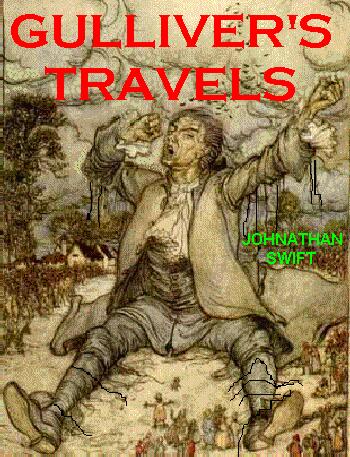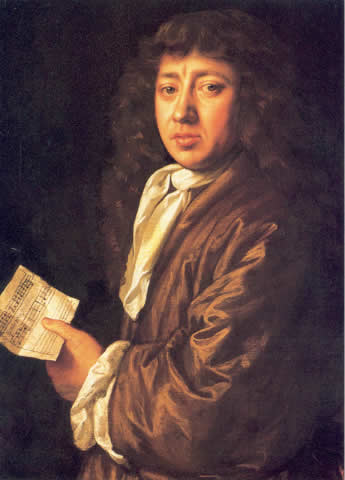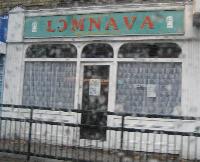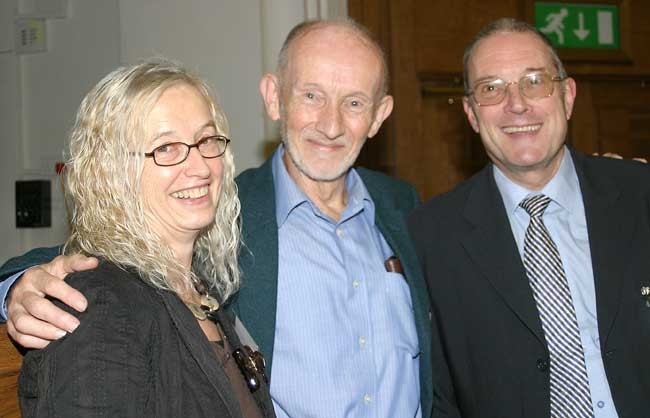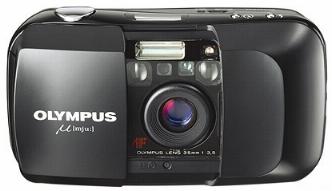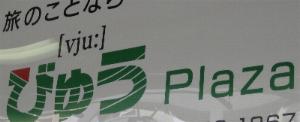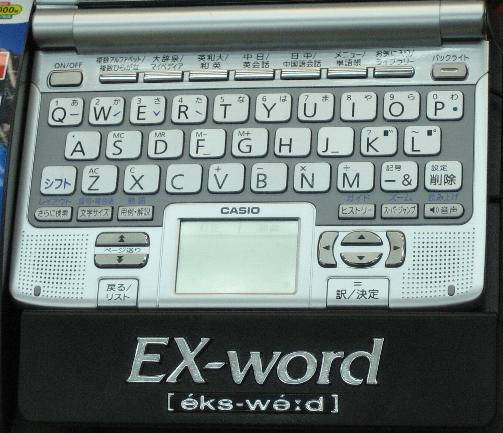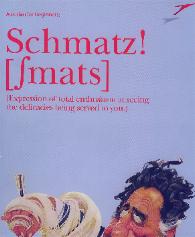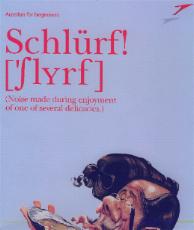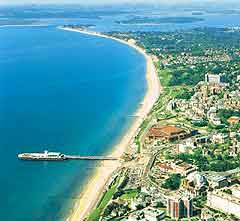DEPARTMENT OF SPEECH, HEARING & PHONETIC SCIENCES UCL Division of Psychology & Language Sciences |
 |
John Wells’s phonetic blog
|
|
| Wednesday 31 October 2007 | RedriffFollowing on from the blog piece on Rothersthorpe (8 Oct.), Henry Bottomley writes I wondered about where I live: the Rotherhithe peninsula in south east London. The curiosity is that it had a second name, presumably cognate, of Redriff and there is a primary school and road still using the second name. Both (adjusting for final e) are used in Gulliver's Travels as the location of Gulliver's house and family, and Pepys always used Redriffe. The answer to Henry’s question is that in non-rhotic accents such as RP and London /r/ and /h/ are mutually exclusive in names like this. In this respect Rotherhithe is comparable to Leatherhead and Wolverhampton. The standard and polite pronunciation retains the /h/, thus /ˈrɒðəhaɪð, ˈleðəhed, ˌwʊlvəˈhæmptən/. Local working-class accents tend to drop /h/, giving /ˈrɒðəraɪð, ˈleðəred, ˌwʊlvərˈæmptən/. Dropping the /h/ in these names is comparable to dropping the /h/ in phrases such as over here, a bigger house: if the /h/ goes, linking /r/ is automatically triggered. But dropping the /h/ is clearly stigmatized and regarded as uneducated: it would indeed sound ‘Sarf (= south) London’. In the form Redriff we have not only H dropping but also a centuries-old case of TH fronting. Here’s an extract from Samuel Pepys’s diary for 1 May 1665.
All authorities agree that Rotherhithe and Redriff(e) are doublets. Seventy years ago, when it was still expected that every scholar would know Latin, Ekwall’s entry in The Concise Oxford Dictionary of English Place-names coyly begins “Rotherhithe (olim rĕdrĭf)”. According to Ekwall, the name comes from OE hrȳther + hȳth ‘landing place for cattle’. But according to a BBC website, the first element is OE redhra ‘sailor’. The only times I have passed along Redriff Road, Rotherhithe, were while running the London Marathon. The marathon course takes the runners right around the Rotherhithe peninsula. |
|
| Tuesday 30 October 2007 | The IPA in public again?Following on from the discussion of the public use of IPA symbols (blog, 26 October), with my rhetorical question How many owners of an Olympus μ [mju:] camera recognize the last part of the name as the phonetic transcription of the English name of the Greek letter in the first part? — Nigel Greenwood writes Not many anglophones, I fear! On many websites it seems to be referred to as Mju or even MJU (/ˌem dʒeɪ ˈjuː/, I imagine, as if it were an acronym). A certain number of websites, it is true, point out that it's pronounced "mew" (which in turn prompts the frequent comment that "it's the cat's whiskers!"). The very fact that [mju:] needs to be glossed as "mew" says it all. The English-speaking world is still largely an IPA-free zone. * * * There are several West African languages which have extra letters in their orthography, letters derived from IPA symbols. Most commonly these are ŋ, ɛ, ɔ, with of course their upper-case counterparts. (If your browser can show them, these are Ŋ, Ɛ, Ɔ.) Here are the lyrics of a Twi song in which there are frequent instances of the extra vowel letters. I am aware of one site in London where one of these letters is on public display. It is in the name of a Ghanaian restaurant in Seven Sisters Road, South Tottenham. My photo shows its fascia board (snapped, I’m afraid, through a raindrop-spotted car window in moving traffic). The language is probably either Akan (Twi, Fante) or Ga (Gã). Can anyone tell us which? |
|
| Monday 29 October 2007 | Linguistics and EducationOn Saturday I was one of the two keynote speakers at a conference on the Interface between Linguistics and Education at the University of Westminster, organized by Patricia Ashby. In my talk I discussed pronunciation dictionaries. But I want here to report briefly on the other keynote speech, which was given by Dick Hudson. One of the points that Dick made was that the language-teaching crisis in our schools is exacerbated by the fact that university departments of English generally don’t teach English, they teach English Literature. They ought to be called departments of English Literature. With the explosion of interest in the English Language A-level, there is a shortage of teachers capable of teaching it. Why? Because priority in admission to PGCE courses is given to those who have a degree in English. But a degree in English usually means a degree in English Literature: people who have one will generally not have acquired any real knowledge of English language and linguistics from their undergraduate course. Similarly, departments of French in reality often teach only French Literature. But teachers of French in secondary schools need to know French language/linguistics. Departments of German mainly teach German Literature. But teachers of German in secondary schools need to know German language/linguistics. |
|
| Friday 26 October 2007 | IPA transcription goes publicHere are the covers of two menus I received on my recent flights to Tokyo and back with Austrian Airlines. The small print at the top says Austrian for beginners. In the first menu, Schmatz! is glossed as “Expression of total enthusiasm at seeing the delicacies being served to you”; in the second, Schlürf as “Noise made during enjoyment of one of several delicacies”. But what struck me was the very high profile given to the phonetic transcriptions of these words. Non-German speakers should indeed be interested in how to pronounce them, and anyone familiar with the IPA alphabet has the exact information required there in front of them. Except for the arguably redundant stress mark in the transcribed version of Schlürf, the transcriptions are accurate. So well done Austrian Airlines. If only the average textbook for learning foreign languages (other than EFL) were as helpful! This is not the first or only case of the public use of phonetic transcription. How many owners of an Olympus μ [mju:] camera recognize the last part of the name as the phonetic transcription of the English name of the Greek letter in the first part?
Here are two further instances I noticed during my visit to Japan. The first is on the nameboard of a commercial building, and assumes that people can interpret the English word view in transcription.
The second is a Casio electronic dictionary I saw in an Akihabara store. Bear in mind that in Japanese dictionaries and textbooks English stress is usually shown by acute (primary) and grave (secondary) marks. And they write the NURSE vowel as a schwa plus lengthmark.
Even so, I think the stress marking is wrong. I would use a single initial stress in the compound EX-word, not a double stress as shown. |
|
| Thursday 25 October 2007 | More mouthinessThe debate about Gordon Brown’s pronunciation of Bournemouth continues. Andrew Weir, who is Scottish, writes: I'm amazed that any Scot has been heard to say [maʊθ] (or [mʌuθ]) in "Plymouth" or "Bournemouth". Although I'm loath to contradict one of my lecturers (I study Linguistics at Edinburgh University), for this Scottish speaker those town names are unquestionably [ˈplɪməθ], [ˈboːrnməθ] (although "Grangemouth" is certainly [ˈgren(d)ʒmʌuθ]), and a quick straw poll of readily accessible Scots in my flat confirms this. [ˈboːrnmʌuθ] and especially [ˈplɪmʌuθ] sound completely wrong (to say nothing of [ˈplaɪmʌuθ]). Perhaps we are just overly cosmopolitan university students who happen to have noticed that the English "do it differently" though... Sidney Wood returns to the issue, referring to Daniel Jones’s English Pronouncing Dictionary: Back to my old EPD (all I have at hand). DJ admitted the diphthong variant for Grangemouth as well as Bournemouth, but not for Plymouth, Sidmouth etc. The 11th edition of EPD indeed gives [-maʊθ] as a variant in Bournemouth but labels it ‘rare’. This variant persisted into the 14th edition, edited by Gimson and Ramsaran, but has been removed in the current (17th) edition, edited by Roach and Setter. For Grangemouth, site of Britain’s largest petrochemical plant, EPD still prioritizes [-məθ]. Even in LPD I give it as a variant, although the preferred form is [-maʊθ]. I mentioned Avonmouth and Oystermouth yesterday. Three places in the northeast of England have strong -mouth: they are Alnmouth, Lynemouth and Monkwearmouth. Another north-eastern name, Tynemouth, varies. In the northwest there is Cockermouth. An isolated exception in the south appears to be Axmouth in Devon. Otherwise, every -mouth in England and Wales is weak. Going round the coast clockwise, we have Great Yarmouth, Portsmouth, Yarmouth (IoW), Bournemouth, Weymouth, Sidmouth, Exmouth, Teignmouth, Dartmouth, Plymouth, Falmouth, Widemouth Bay, Lynmouth, Monmouth, and Barmouth. John Maidment (who has started his own blog here) suggests a generalization: -mouth is always strong after a disyllabic river name. I am not sure about Creekmouth near Barking in East London. The name is apparently a quite modern coinage, and I don’t think I have ever heard it spoken. But I suspect it is ˈkriːkmaʊθ, just as in the common nouns blabbermouth and goalmouth. |
|
| Wednesday 24 October 2007 | Gordon Brown againWith reference to Gordon Brown’s pronunciation (blog, 17 October), Graham Pointon writes Many Scots would naturally pronounce Bournemouth in GB's way - just as Grangemouth is pronounced with a diphthong in the second syllable. I agree that it shows a lack of social awareness that he has never noticed that the English "do it differently", but it certainly isn't unique to him. Scots will almost invariably correct the English when they say ˈgreɪndʒməθ. I've even heard Plymouth pronounced as ˈplaɪmaʊθ. Andrew Smith, an Englishman living in Scotland, confirms this: Although his al-Qaeda does appear to be a one-off, his pronunciation of Bournemouth with /‑maʊθ/ is nothing special at all — I would guess that it's actually standard for most Scots speakers to pronounce all placenames ending in -mouth (Plymouth, Bournemouth, Eyemouth) like this. For everyone except the Scots — that is, for the English, the Welsh, the Americans, the Canadians and the West Indians, and no doubt the Australians and New Zealanders, Plymouth is unquestionably ˈplɪməθ. Question: if we English can manage to remember to use unreduced -mouth in Grangemouth, Lossiemouth and Eyemouth, oughtn’t Scots — particularly those living in England — to be able to remember to reduce it in English placenames? I think the point about GB’s lack of social awareness stands. P.S. In the cases of Avonmouth near Bristol and Oystermouth near Swansea, even the English say ‑maʊθ. |
|
| Tuesday 23 October 2007 | Loanwords in JapaneseYoshi Fujino was the first of several correspondents who wrote to explain that Japanese biiru (blog, yesterday) was taken not from English beer, not from German Bier, but from Dutch bier. According to Mark Irwin, the borrowing was made in the 18th century, at a time when 'Dutch-learning' ('rangaku' in Japanese) was in vogue - the Japanese initially learned medicine and other western 'technologies' from Dutch books. On the other hand Japanese also has the loanwords bia hooru (beer-hall) and bia gaaden (beer garden), which show the expected treatment of English final r. Another interesting doublet is provided by the English word serge (material), which in Japanese has yielded both saaji, for Western clothing, and seru (formerly seruji), for Japanese clothing. Kazuhiko Matsuno adduces two cases in which German preconsonantal /r/ is preserved in Japanese: arubaito, meaning a job on the side (German Arbeit), and the name of the composer Moots(u)aruto (Mozart). P.S. Nigel Greenwood points out that despite the loss of /r/ in hanba:ga: the placename Hamburg is Japanized as hanburuku. |
|
| Monday 22 October 2007 | Where did the Japanese get it from?Maire Smith writes, with reference to Friday’s blog entry, Why couldn't Japanese have picked up elevator from a non-rhotic dialect other than British English? As young people say nowadays, \Yeah,| \right. Take another example: hamburger becomes Japanese non-rhotic hambaagaa, and I don’t think it was New Zealanders who introduced hamburgers to the country. Actually, there are two possible ways of making a non-prevocalic /r/ fit in with Japanese phonotactics. One is to ignore it, as in the final syllable of the /erebeetaa/ that we discussed. The other is to treat it like other non-prevocalic consonants, which for Japanese means adding an epenthetic /u/ or /o/, as when McDonald’s becomes /makudonarudo/. The examples door, Japanese /doa/, and beer, Japanese /biiru/, illustrate these two possibilities. Why Japanese preserves the American /r/ in beer but not in door I have no idea. Presumably it reflects different dates of borrowing. Perhaps British influence was stronger when doa was adopted, and American influence when biiru was. Perhaps some reader who knows about the history of English loanwords in Japanese can tell us. Perhaps biiru was borrowed not from English beer but from German Bier, at a time when German still had word-final [r]. |
|
| Friday 19 October 2007 | Non-rhoticity in JapaneseIn Japanese there are plenty of examples of borrowings from English which rhotic speakers might find difficult to interpret. (To be honest, even we non-rhotic speakers do not always easily connect such borrowings to the English origin, either.) Japanese has an /r/, but it is used only before a following vowel, i.e. in just the same positions where non-rhotic English allows it. So English door becomes Japanese doa. An interesting example is the word elevator. When written in Japanese katakana it reads, in transliteration, erebe:ta: (see picture), and is correspondingly pronounced. Yet this word must have been borrowed from American English, not from British English, since we Brits call the apparatus in question a lift. Nevertheless, the American voiced [t̬] of American elevator [ˈeləveɪt̬ɚ] is mapped onto Japanese voiceless /t/ rather than onto voiced /d/, while the American final r-coloured schwa [ɚ] is mapped onto a Japanese double /aa/. It is regular for English /v/ to be mapped onto Japanese /b/, and for /l/ to be mapped onto /r/, i.e. [ɾ]. But that is not relevant to the current issue. It also seems to be typical for loanwords to be taken from American English but then pronounced as RP-style British English interpreted in Japanese phonetics. * * * Sidney Wood writes from Lund in Sweden to comment on Gordon Brown’s pronunciation (blog, 17 October). [Most of] the pronunciations quoted in the article look like spelling pronunciations. I've heard that Gordon Brown's family background is presbyterian clerical, so I wonder if there's a tendency there to prefer hypercorrect pronunciations in public speaking, for example when reading aloud or preaching. In reply to this I have to point out that I myself, like Gordon Brown, am the son of a clergyman. I did no doubt acquire from my father an ability to speak confidently in public and to read written material aloud audibly and with understanding — but not a propensity to hyperarticulate under these circumstances. But like most other people I do hyperarticulate when singing, notably by using certain strong vowels in place of the weak vowels of ordinary conversation. |
|
| Thursday 18 October 2007 | Clockwork Orange-eseJerome Poirrier, as a non-native speaker of rhotic English, says that he had to take the same path as Eric Armstrong (blog, 16 Oct.), gradually realizing that in British puns er = a, as in Whiskas. He comments further, One of my most gratifying encounters with that kind of pun was when I was reading "A Clockwork Orange" by Anthony Burgess for the second time. His invented slang nadtsat resorts to Russian a lot... Many of you will have read this novel (first published 1962) or seen the 1971 Stanley Kubrick film based on it. It is set in an imagined England of the future, an England under Soviet domination. Some readers/viewers will have recognized the Russian origin of these words in the slang put in the mouths of some of the characters, others will have been thoroughly puzzled by them. For example, the protagonist Alex refers to the fellow members of his teenage gang as his droogs. This word is based on the Russian друг drug, ‘friend’. Similarly, klootch means ‘key’, from Russian ключ. There is a long list of such words here. Jerome continues, I was quite pleased on the day the following realizations occurred to me : Speakers of rhotic English do indeed face this additional hurdle when deciphering Burgess’s invented slang. My own favourite Nadsat word is horrorshow, meaning ‘good’, which is cleverly antonymous. It comes from the Russian хорошо, transliterated khorosho and pronounced [xəɾʌˈʃo]. |
|
| Wednesday 17 October 2007 | Gordon BrownIn his regular parliamentary sketch in the Guardian, Simon Hoggart comments that Gordon Brown does have some peculiar ways of pronouncing certain words. I've already mentioned Alky Ada, who sounds like a boozy old aunt rather than a terror organisation. His "saze" instead of "sez" for "says" is a Scottish and northern thing, so doesn't really count. But "Bourne-mouth", as opposed to "Bourne-muth" is just mistaken (David Cameron has mocked it in public), as is "ree-conciliation" instead of "reck-onciliation". The most popular way of pronouncing Al-Qaeda in English seems to be /ælˈkaɪdə/, so our Prime Minister’s /ˌælkiˈeɪdə/ (or the equivalent in a Scottish accent) does sound odd. The other pronunciations that Simon Hoggart lists sound equally bizarre. They do indeed suggest a certain lack of social awareness on the part of the speaker, who seems to have been led to invent his own spelling-based pronunciations, perhaps using spelling-to-sound correspondences that are inappropriate in the particular case. Yes, for says, said most of us do pronounce /sez, sed/, we use /-məθ/ in Bournemouth, and we start reconciliation with /ˌrek-/. EFL learners, too, take note: using wrong pronunciations may convey a hidden unfavourable message about you as a speaker. |
|
| Tuesday 16 October 2007 | Phantom r: a rhotic viewWith reference to words spelt with r but not pronounced with /r/, or vice versa (blog, 12 Oct.), Eric Armstrong writes from Toronto: As a Canadian, I can attest to the baffling nature of products like "Whiskas" and "Polyfilla". As a child, I had NO IDEA that these were derived from words with -er endings. Their advertising makes the words sound just like we Canadians would read them. It wasn't until I went to the UK for a year in my early 20's that I began to "hear" the R in those words. As we say (or rather write) in England, you’ve got to larf. |
|
Archived from previous months:
To search my web pages, use this Google search.
my home page



